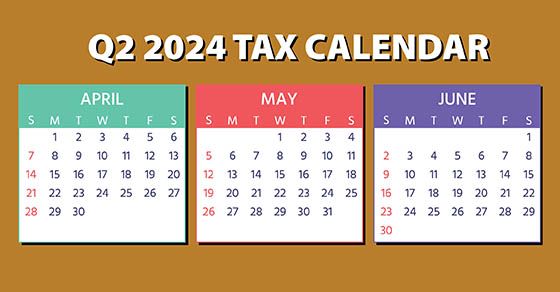Business owners, your financial statements are trying to tell you something
- ByPolk & Associates
- Apr, 11, 2024
- All News & Information
- Comments Off on Business owners, your financial statements are trying to tell you something
Business owners should regularly generate financial statements in compliance with Generally Accepted Accounting Principles (GAAP). One reason why is GAAP-compliant financial statements can reveal critical details about your company’s financial performance. For example, your income statement can point to revenue and profit trends, though it doesn’t address cash flow. Meanwhile, your balance sheet tallies assets, liabilities and equity. But the book value of owners’ equity isn’t always the same as market value. The statement of cash flows shows both inflows and outflows of cash. Be sure to check it as soon as it’s available to see where your cash flow stands. Contact us for more information.
Update on retirement account required minimum distributions
- ByPolk & Associates
- Apr, 11, 2024
- All News & Information
- Comments Off on Update on retirement account required minimum distributions
If you have a tax-favored retirement account, including a traditional IRA, you must comply with the required minimum distribution (RMD) rules after reaching a certain age. Currently, the starting age for RMDs is 73 for account owners who turned 72 beginning in 2023. So, if you turned 72 in 2023, you’ll turn 73 in 2024 and your initial RMD will be for calendar 2024. You must take that initial RMD by April 1, 2025, or face a penalty. The tax-smart strategy is to take your first RMD (for 2024) before the end of 2024 instead of in 2025. Then, take your second RMD (for 2025) by Dec. 31, 2025. That way, you’ll avoid having to take two RMDs in 2025 with the resulting double tax in that year.
Scrupulous records and legitimate business expenses are the key to less painful IRS audits
- ByPolk & Associates
- Apr, 11, 2024
- All News & Information
- Comments Off on Scrupulous records and legitimate business expenses are the key to less painful IRS audits
If you operate a business, you know records of income and expenses need to be kept. Specifically, you should carefully record expenses to claim all the tax deductions to which you’re entitled. And you want to make sure you can defend the amounts reported on your tax returns in case you’re ever audited by the IRS. Certain expenses, such as auto, travel, meal and home office expenses, require extra attention because they’re subject to special recordkeeping requirements or limits on deductibility. In addition to keeping good records, make sure to use your business bank account for business purposes only. A business can’t deduct personal expenses. Contact us with questions.
A general look at generative AI for businesses
- ByPolk & Associates
- Apr, 11, 2024
- All News & Information
- Comments Off on A general look at generative AI for businesses
Many businesses are now using “generative” artificial intelligence (AI). Essentially, this is software that’s able to generate new content based on input from users and existing data either inputted during development or gathered from the internet. How companies use generative AI depends on factors such as industry, mission, operational needs and strategic objectives. But it can help businesses create marketing content, analyze financial data and automate customer service. If you’re intrigued by the concept, discuss it with your leadership group. If you decide to move forward, form a project team to clearly define your objectives. Also, explore potential liabilities. Contact us for help.
Coordinating Sec. 179 tax deductions with bonus depreciation
- ByPolk & Associates
- Apr, 11, 2024
- All News & Information
- Comments Off on Coordinating Sec. 179 tax deductions with bonus depreciation
Your business should generally maximize current year depreciation write-offs for newly acquired assets. Two federal tax breaks can help achieve this goal: first-year Section 179 depreciation deductions and first-year bonus depreciation deductions. These deductions can potentially allow businesses to write off some or all of their qualifying expenses in Year 1. However, Sec. 179 is subject to limits and annual inflation adjustments, and the bonus depreciation percentage in 2024 is 60% (down from 80% in 2023). The current tax-saving strategy is to write off as much of the cost of qualifying assets as you can with Sec. 179 deductions. Then claim as much first-year bonus depreciation as you can.
The tax deadline is almost here: File for an extension if you’re not ready
- ByPolk & Associates
- Apr, 11, 2024
- All News & Information
- Comments Off on The tax deadline is almost here: File for an extension if you’re not ready
The April 15 tax filing deadline is right around the corner. However, you might not be ready to file. Sometimes, it’s not possible to gather your tax information by the due date. If you need more time, you should file for an extension on Form 4868. An extension will give you until Oct. 15 to file and allow you to avoid “failure-to-file” penalties. However, it only provides extra time to file, NOT TO PAY. Whatever tax you estimate is owed must still be sent by April 15, or you’ll incur penalties, and they can be steep. Contact us if you have questions about IRS penalties or about filing Form 4868.
2024 Q2 tax calendar: Key deadlines for businesses and employers
- ByPolk & Associates
- Apr, 11, 2024
- Uncategorized
- Comments Off on 2024 Q2 tax calendar: Key deadlines for businesses and employers
Here are some key tax deadlines for businesses during the second quarter of 2024. APRIL 15: Calendar-year corporations file 2023 income tax returns (Form 1120) or file for a six-month extension (Form 7004) and pay any tax due. APRIL 15: Corporations pay the first installment of 2024 estimated income taxes. APRIL 30: Employers report income tax withholding and FICA taxes for the first quarter of 2024 (Form 941) and pay any tax due. MAY 15: Employers deposit Social Security, Medicare and withheld income taxes for April if the monthly deposit rule applies. JUNE 17: Corporations pay the second installment of 2024 estimated income taxes. Contact us to learn more about filing requirements.
Bartering is a taxable transaction even if no cash is exchanged
- ByPolk & Associates
- Mar, 18, 2024
- All News & Information
- Comments Off on Bartering is a taxable transaction even if no cash is exchanged
If your small business is strapped for cash (or likes to save money), you may find it beneficial to barter for goods and services. Bartering isn’t new, but the internet has made it easier. However, if your business barters, be aware that the fair market value of goods you receive is taxable income. And if you exchange services with another business, the transaction results in taxable income for both parties. Some businesses join barter clubs that facilitate barter exchanges. If you join one, you’ll be asked to provide your Social Security number or Employer Identification Number. You may receive a form that reports barter transactions. Contact us if you’d like assistance or more information.
B2B businesses: Assess customer credit carefully
- ByPolk & Associates
- Mar, 18, 2024
- All News & Information
- Comments Off on B2B businesses: Assess customer credit carefully
Does your company operate in the B2B marketplace? If so, it’s critical to keep a close eye on how you assess customer credit. If you’ve been using the same credit application for a while, reevaluate it to see whether you should add questions or update the design. Consider asking privately owned customers for a set of their most recent financial statements or, at the very least, their latest income statements and balance sheets. Be sure to request and follow up on bank and multiple trade references as well. Order credit reports on prospective customers, too. Finally, consider “adverse media screening” to look for bad or concerning news about credit applicants. Contact us for help.
Better tax break when applying the research credit against payroll taxes
- ByPolk & Associates
- Mar, 18, 2024
- All News & Information
- Comments Off on Better tax break when applying the research credit against payroll taxes
The credit for increasing research activities is a valuable tax break for eligible businesses. Claiming it involves complex calculations. But in addition to the credit, be aware that it also has a feature that’s favorable to eligible small businesses. The credit can be used against the employer’s Social Security and Medicare payroll tax liability. To qualify for the election a taxpayer: 1) must have gross receipts for the election year of less than $5 million, and 2) be no more than five years past the period for which it had no receipts (the start-up period). The Inflation Reduction Act doubled the amount of the payroll tax credit election for eligible businesses, from $250,000 to $500,000.










